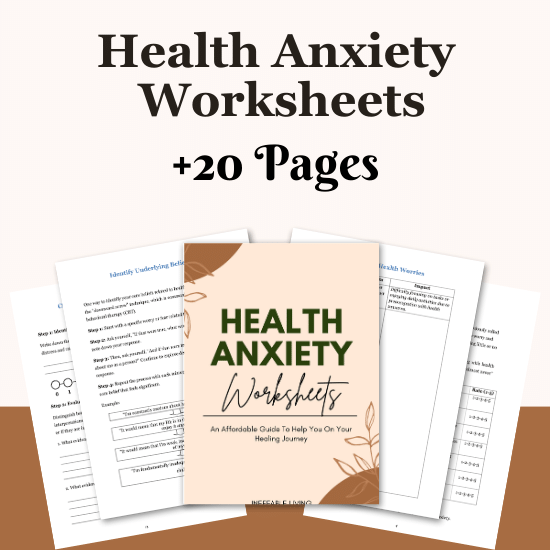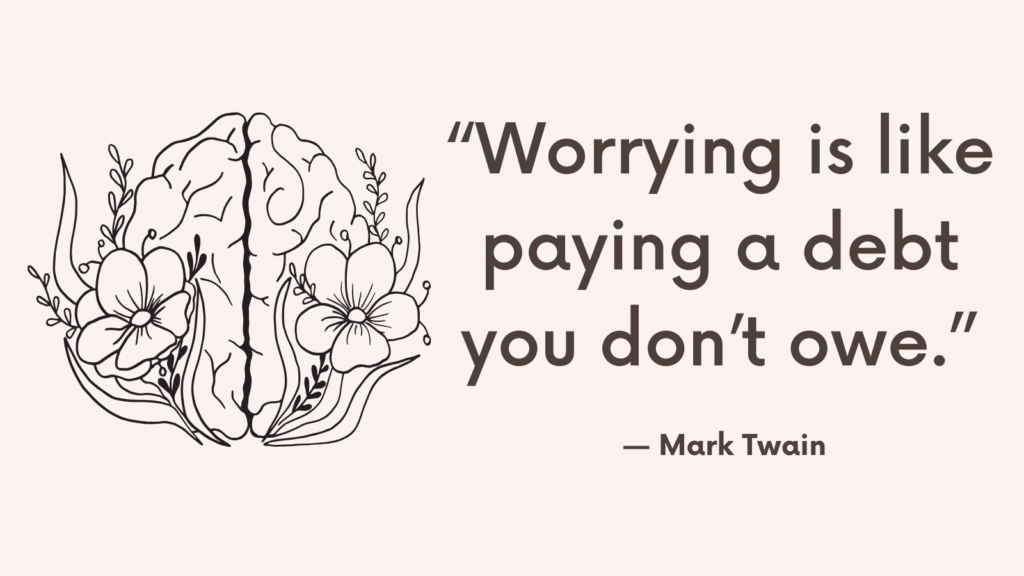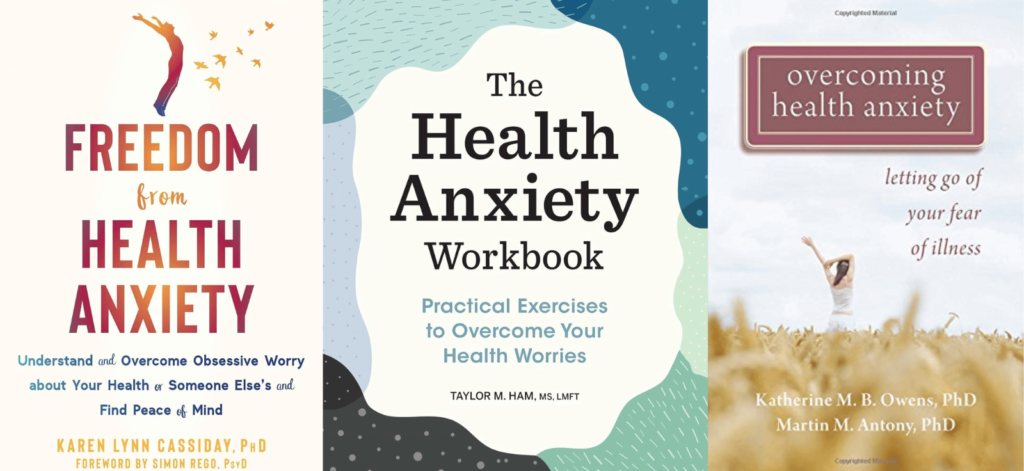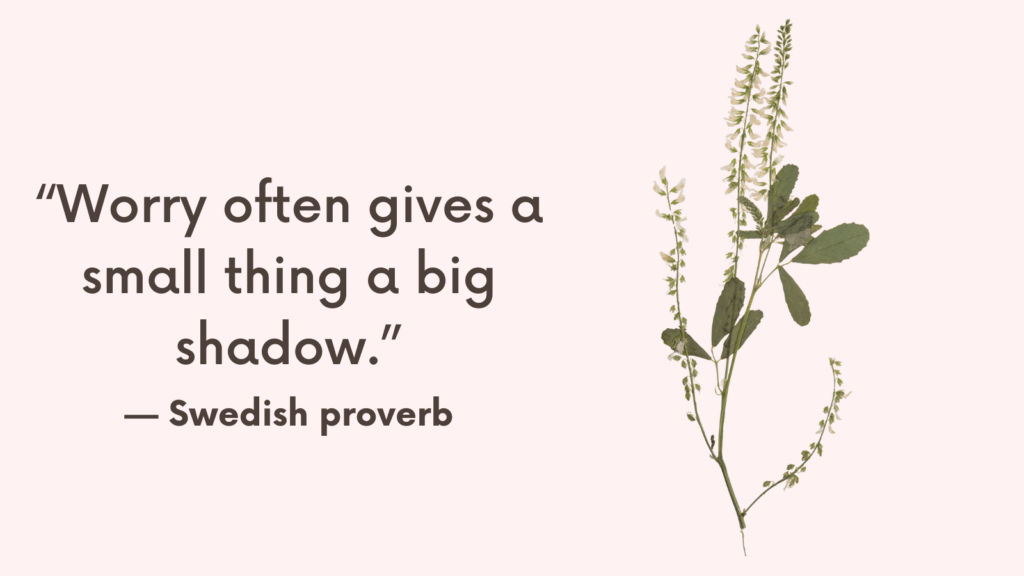Health anxiety spirals are intense, draining, and often leave you feeling ashamed, scared, and emotionally exhausted. You might have spent hours Googling symptoms, checking your body, imagining worst-case scenarios, or seeking constant reassurance. But spiraling doesn’t mean you’ve failed — it means your anxiety flared up. The key is learning how to gently bring yourself back to a calm, grounded state.
What Is Health Anxiety?
Health anxiety is the persistent fear of having a serious illness, even when medical tests and doctors say you’re healthy. It involves misinterpreting normal body sensations—like a twitch, headache, or heartbeat—as signs of dangerous diseases.
People with health anxiety often:
- Worry excessively about their health
- Constantly check their body for symptoms
- Seek frequent reassurance from doctors or loved ones
- Obsessively Google medical conditions
- Avoid anything that reminds them of illness (e.g., hospitals, news)
It’s not “just worrying”—it’s an anxiety disorder that affects daily life, relationships, and peace of mind.
Related: Best 7 Health Anxiety Books
Why Health Anxiety Feels So Real
The physical symptoms of anxiety—like chest tightness, shortness of breath, or dizziness—can mimic real medical issues. This makes it easy to believe something is truly wrong. Add the power of imagination and worst-case scenarios, and even a small ache can feel like a sign of something life-threatening.
How to Recover After a Health Anxiety Spiral?
1. Acknowledge What Just Happened
Say to yourself:
- “That was a spiral.”
- “My anxiety took over for a while.”
- “I’ve been here before, and I always find my way back.”
Labeling it helps you move from fear to awareness.
2. Don’t Criticize Yourself
Avoid saying things like “I’m so irrational” or “Why can’t I stop doing this?” Self-judgment fuels the cycle. Instead, say:
- “That was hard. I deserve kindness right now.”
- “It makes sense that I got scared. I’m learning to handle it better.”
Related: How to Cope with Health Anxiety without Medication?
3. Ground Yourself in the Present
Use your senses to reconnect to the moment:
- Name 5 things you see, 4 you can touch, 3 you hear, 2 you smell, 1 you taste.
- Place your feet on the floor and take 3 slow, deep breaths.
- Splash your face with cold water or hold something textured in your hands.
4. Step Away From All Symptom Research
Shut down tabs, put away your phone, and make a commitment: “I will not research anything else today.” Even just a few hours of distance can dramatically reduce anxiety.
5. Reassure Yourself With the Truth
Repeat a few grounding reminders:
- “I’ve had these fears before. They always pass.”
- “There is no new evidence that anything is wrong.”
- “I’ve been checked. My body is not in crisis — my mind is afraid.”
6. Engage in a Calming Activity
Shift from thinking to doing. Try:
- Listening to calming music
- Going for a walk
- Doing something repetitive like folding laundry, coloring, or knitting
- Watching a feel-good show or reading a comforting book
Movement and sensory activities help your brain exit panic mode.
Related: Hypochondria: How to Deal with Health Anxiety?
7. Journal the Spiral
Write down:
- What triggered it
- What thoughts came up
- How it felt in your body
- What helped you get out
This helps you identify patterns and gain insight for next time.
8. Refocus Your Attention
Gently shift your focus onto something neutral or positive:
- Work, a hobby, a conversation, nature
It doesn’t have to be deep — just a change in direction.
9. Reflect With Curiosity, Not Blame
Ask:
- “What do I need to feel safer right now?”
- “What tools helped me most?”
- “What can I remember for next time?”
This reflection builds resilience and helps you recover faster in the future.
10. Plan for Rest and Recovery
Health anxiety spirals are exhausting. Give yourself permission to rest:
- Take a nap
- Unplug from screens
- Eat something nourishing
- Go to bed early
Your body and brain need time to reset after that level of emotional intensity.
Related: Best 45 Health Anxiety Affirmations

Conclusion
A health anxiety spiral doesn’t mean you’re broken — it means you’re overwhelmed. But every time you come back from it, you strengthen your ability to recover faster next time. You are not your spiral. You are the calm that follows.



